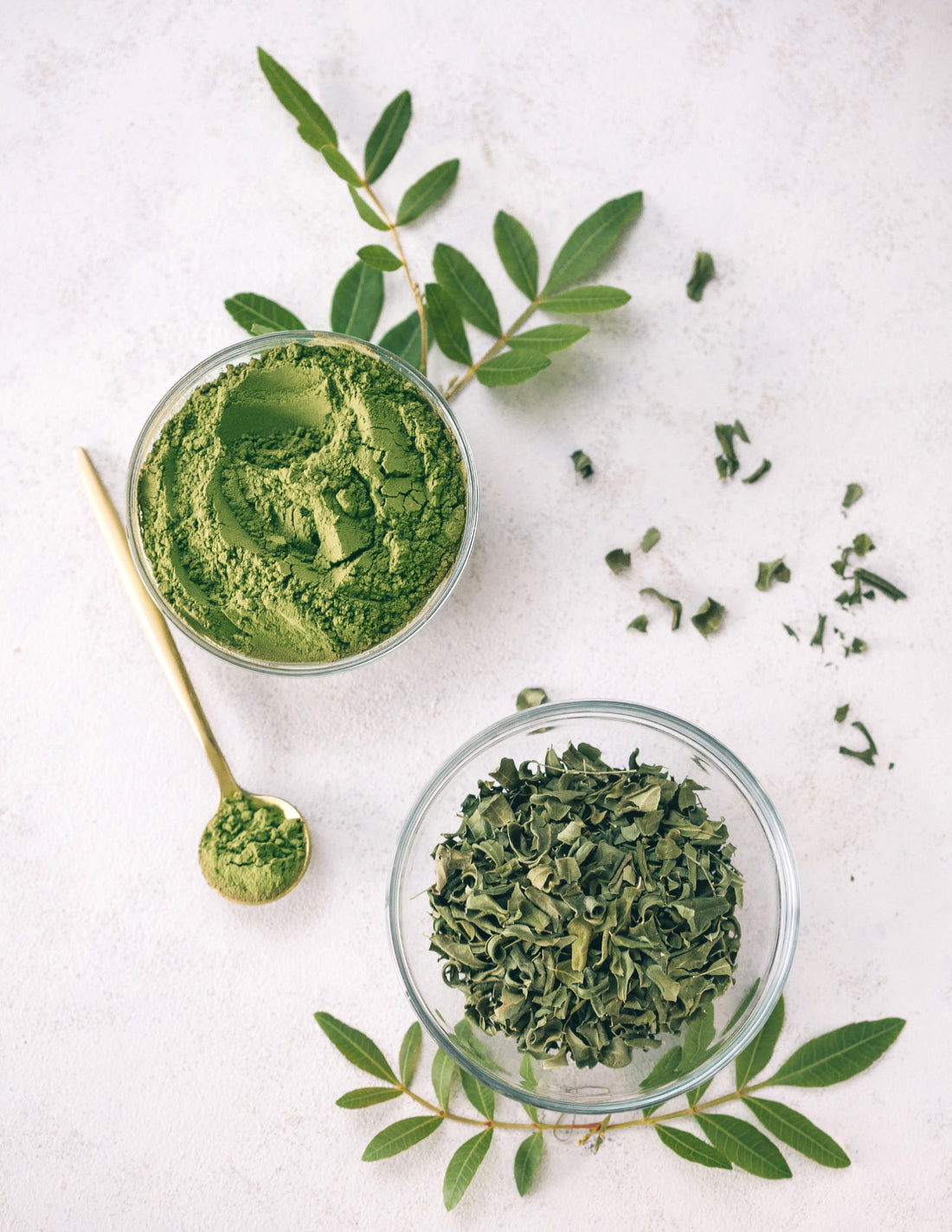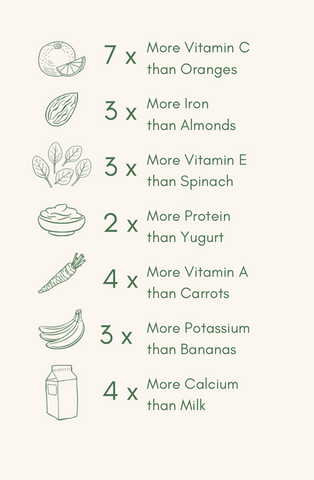
Moringa Oleifera: 7 times more vitamin C than oranges (and other citrus)
Share
Ascorbic Acid, Vitamin C, or whichever name you prefer, is a key nutrient in our everyday function. From wound-healing, to cell protection, and almost all between, vitamin c is involved in many aspects of our health.

Moringa contains approximately seven times more vitamin C than oranges, their most famed source. Only half a cup of Moringa leaves meets your recommended daily intake of Vitamin C, with high levels of vitamin content found in all areas of the plant.
For Your Skin
Vitamin C is not just a booster for your immune system, it has serious added benefits when applied to the skin. For starters, vitamin C is an antioxidant, meaning it protects against diseases caused by sun damage, pollution and other environmental irritants. When applied to the skin, Vitamin C repairs the skin barrier, preventing damage to vulnerable skin cells. Through its antioxidant properties, vitamin C also works as an anti-inflammatory, reducing redness and swelling.
Vitamin C does wonders for your skin tone. It helps to brighten your skin and reduce hyperpigmentation, making your skin appear even. Sufferers of hyperpigmentation usually see results after using products high in vitamin c in as little as three weeks! This includes sunspots and age spots, which can fade with regular application.
Vitamin C is essential in the production of collagen; it cannot occur without it! Collagen is a naturally occurring protein, with lower levels leading to fine lines and wrinkles. To reduce the appearance of wrinkles, collagen production should be increased, and this is where vitamin C comes in. Vitamin C is a known stimulant of collagen production, through collagen synthesis. This means that using vitamin C on the skin will increase collagen levels, reducing wrinkles and improving skin elasticity (preventing sagging).
For Your Wellbeing
As a primary antioxidant, vitamin C is involved in many cell processes in the body. Ever heard of scurvy? Bleeding gums, loose teeth, and bleeding under the skin, it's not exactly everyone’s favourite illness. Scurvy is the direct result of vitamin C deficiency, so it's important to get the right amount of vitamin C in your diet.
Vitamin C can also help improve stress and anxiety. In a controlled study, students with anxiety who took vitamin C showed decreased levels of stress and anxiety. The antioxidant properties help the body control cortisol levels, which triggers stress. Getting a daily dose before the day can keep stress at bay and improve your mood.
Too Much of a Good Thing?
Worried about Vitamin C toxicity? You don’t need to be. Too much vitamin C intake is unlikely to cause harm, but could lead to feelings of nausea or diarrhoea. This is because vitamin C is a water-soluble molecule. Water-soluble vitamins like C and B Complex are carried to the body's tissues and do not accumulate, being readily excreted by the body.
You don’t need to worry too much about excess vitamin C intake. However, we still recommend you follow the guidelines of medical professionals.
